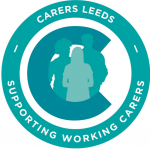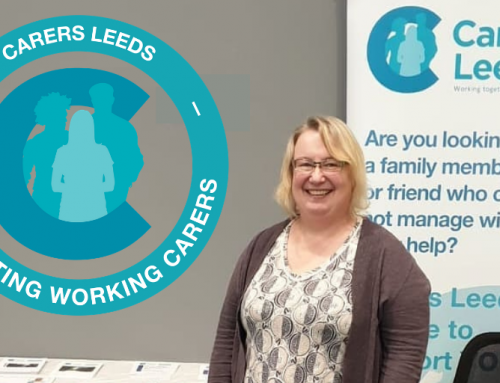For many carers, the workplace provides a sense of identity, independence and a break from their caring role, in addition to financial security. However having caring responsibilities can make working difficult.
Carers Leeds offer support around work-life balance as well as information and guidance that can help carers remain in employment.
In the last edition of Carers News we explored our rights as a working carer and how to go about requesting flexible working arrangements. Here we find out more about taking time off in an emergency.
Taking time off in an emergency
The right to take time off work to deal with an emergency or an unforeseen matter involving a dependant, and the right to not be discriminated against, are statutory employee rights that most carers have in work.
As a carer, needing time off is unavoidable, for example if the person you care for falls ill or is injured, or care arrangements suddenly break down.
There are no limits on how many times you can take time off for a dependent.
You should tell your employer as soon as possible the reason for the absence and how long you expect to be absent. In most cases one or two days is sufficient but will depend on individual circumstances.
Your employer may want to discuss if time off is affecting your work.
Your employer may pay you for time off to look after dependents but they don’t have to. Check your contract, company handbook or check with HR to see if there are rules about this.
The right to taking time off in an emergency does not include; taking the person you care for to appointments you knew about in advance, a domestic emergency, a situation you knew about beforehand, or a situation that doesn’t involve a dependent.
 Your employer must not:
Your employer must not:
– Treat you unfairly for taking time off
– Dismiss you or choose you for redundancy because you asked for time off for a dependent
– Refuse you reasonable time off
If you think you’ve been unfairly treated for taking time off for dependants, get advice from your HR department, trade union representatives, or ACAS.
In the Autumn edition of Carers News we will look at how to talk to your employer about being a carer and tips on how to keep well in the workplace.
Information and guidance
ACAS Helpline: 0300 123 1100
Offers help and advice for both employers and employees about the right to request time off in an emergency.
Citizens Advice Online: www.citizensadvice.org.uk/work/rights-at-work/basic-rights-andcontracts/time-off-work-overview
Provides guidance on your rights at work and time off.
Carers Advice Line: 0113 380 4300
Offers information, advice and support to carers. Monday to Friday: 9am to 4.30pm and Wednesday: 8am to 6.30pm.
Leeds Employers
Carers Leeds work closely with employers to improve access to support for working carers, provide training, influence policy and exchange good practice.
If your employer would like to find out more about how their business can best support working carers, employers can contact Madlen Sayar, Working Carers Service Co-ordinator on 0113 246 8338.
Definition
Dependent: spouse, partner, child, grandchild, parent, or someone who depends on you for care.








Leave A Comment